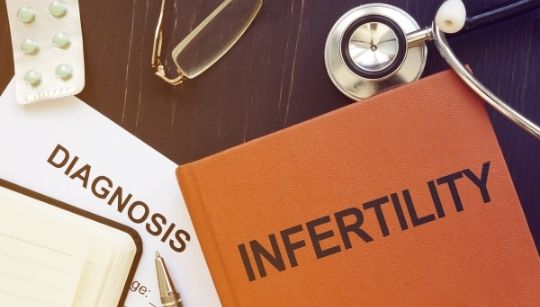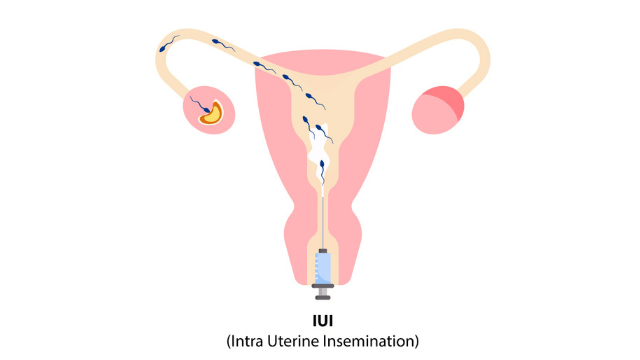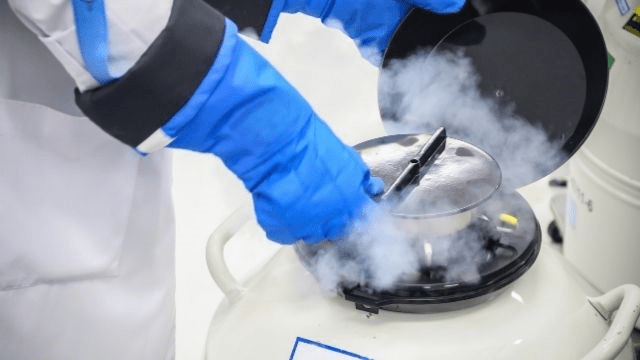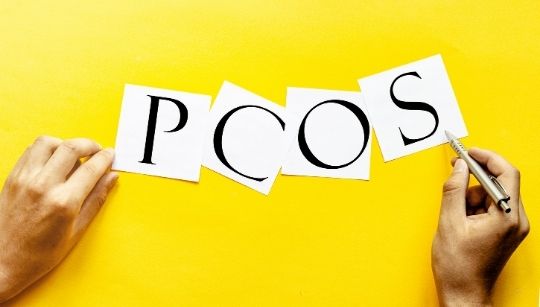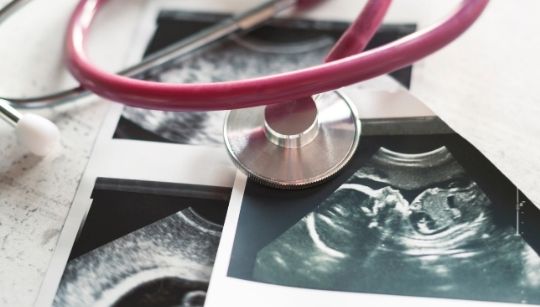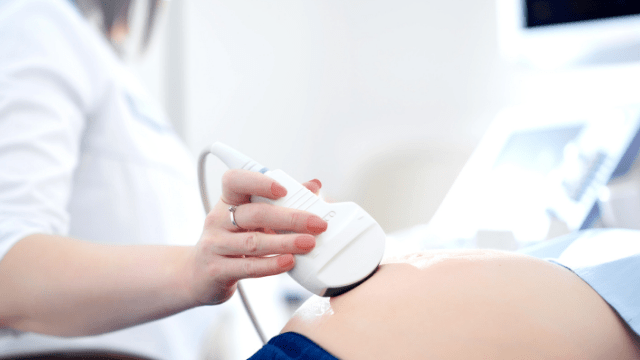Ovulation Induction
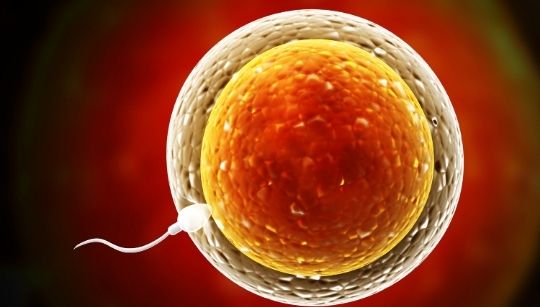
What is ovulation induction treatment?
Ovulation induction treatment is a straightforward fertility treatment. It has the involvement of injectable as well as oral medication, which stimulates regular ovulation. The medicines are taken at the initial stage of the menstrual cycle. The response of the body is further monitored with serial ultrasounds. The clinician sees your ovulation time and suggests the best time for either insemination ( See IUI step by step) or intercourse.
Everything You Need to Know About Ovulation Induction
Indications | Medications | Process | Risks | Side Effects | Benefits | Success Rates | Cost
Ovulation induction indications
Many women may need ovulation induction as some of them infrequently ovulate, while others do not ovulate at all. These indications are most needed for an ovulation induction treatment.
While on the other hand, some women who ovulate regularly can also opt for this treatment to increase the number of eggs released per cycle. This will give them a better chance of conceiving. This treatment is also used by the patients when they undergo an IVF cycle. It helps them to maximize the production of an egg.
Sub Treatments For Female Infertility
We are one of the Best IVF Clinic in Delhi NCR!
69K
Subscribers
4.6 (615 reviews)
4.2 (904 reviews)
3.5 (265 reviews)

5 Out Of 5
Medications Used for Ovulation Induction
The process of ovulation induction uses many hormone-based medicines so that the woman’s reproductive hormones are regulated. It also increases the chances of the release of mature eggs known as ovulation. Some of the drugs commonly used are:
- Clomiphene citrate
It helps to stimulate the ovaries for the development of eggs and ovulation in a woman who is not having changes in the hormones monthly. This medication is prescribed by your doctor.
- Aromatase inhibitors
This medicine proves to be outstanding for patients with Polycystic ovary syndrome (PCOS). It is a very effective drug for inducing ovulation induction. Popularly known as letrozole.
- Insulin-sensitizing agents
PCOS patients who have evidence of prediabetics and diabetics use this medicine. This medication is known to be Metformin.
- Gonadotropins
There are two hormones FSH and LH produced by the pituitary in the brain and they lead to the development of eggs in ovaries and subsequently ovulation. There are two injectable hormones, known as Follicle-stimulating hormone (FSH) and Human menopausal gonadotrophin( composed of both FSH + LH) which are used for ovulation induction.
The ovulation induction process
Step by Step Guide – ovulation induction
- Stimulation
The ovaries get stimulated with the help of medicines. They promote the growth of follicles (egg sacs) that contains the eggs.
- Control
Serial Ultrasounds are known as follicular monitorings and blood tests help to monitor the response of the ovaries. These are beneficial to control the quantity and size of the follicles.
- Egg release
HCG or Human Chronic Gonadotropin injections are triggered to assist the egg when it is finally matured until the egg’s loosening from the follicles wall. Usually, a trigger is planned when the follicle or egg sacs reach the size of 18 to 20 mm as it helps in the final maturation and release of eggs or oocytes.
- Timed sexual intercourse or IUI
The couple is asked to perform intercourse tentatively around 36 hours post trigger injection. Doctors perform an ultrasound during the time of ovulation to see the follicles that are developed simultaneously released or not. It also helps determine the exact days to have sexual intercourse so that the chances of fertilization chances are maximized.
IUI helps to prepare the sample of sperms into the uterus directly. A fine tubing known as IUI cannula is inserted into the cervix or the uterus’s opening where the sperm that is adequately designed can be transferred gently ( see IUI step by Step ).
Risks associated with Ovulation Induction
Ovulation induction is a very straightforward and simple process but few and uncommon risks can be associated with the process. Risks that comes with ovulation induction are multiple pregnancies and Ovarian Hyperstimulation Syndrome (OHSS).
- Ovarian Hyperstimulation Syndrome or OHSS
This is an infrequent and, uncommon problem where the woman responds more to the induction process. This leads to the development of multiple follicles or egg sacs carrying multiple eggs. When such a woman gets an HCG trigger it leads to a hormone rush in the body. Due to that, symptoms like bloating, pain, vomiting, and nausea are widespread. But generally, they are easily overcome by simple medications as prescribed by the doctors. In extreme conditions, it can leads to fluid in the abdomen and lungs ( Ascites and Pleural Effusion) though this is very rarely encountered in the case of ovulation induction by drugs.
As days pass by, these risks are minimized by monitoring the cycle with ultrasound scans and blood tests.
- Multiple Pregnancy
Chances of multiple pregnancies are increased during ovulation induction due to multi follicular development. Chances are higher with Gonadotrophins ( 20%)followed by Clomiphene ( 10 %) and least with Letrozole( 5%).
Side effects of ovulation induction
Few side effects of ovulation induction are:
- Weight gain.
- Hot flashes
- Blurry visions
All these side effects are infrequent and are solved within a short time.
Benefits of ovulation induction
Ovulation induction is considered to be the first line of treatment that is used for infertility. This treatment gives you the benefits of non-invasive and low-cost treatment. Ovulation induction is also an effective treatment when conjunction happens between IUI, IVF, and other treatments.
Ovulation induction success rates
The success rate of ovulation induction depends upon the diagnosis of the woman and also some other factors. Some of the factors like age and medical history are all directly related to ovulation induction’s success rate. The success rate is 40% to 45% per cycle of pregnancy.
Ovulation induction Cost
The cost of ovulation induction treatment in India would be around Rs.2000 to Rs.10000 when being done with drugs or along with minimal gonadotrophins, depending on the gonadotrophin dosage required. It can reach from Rs 75, 000 to 1,00,000 in case of ovulation induction in IVF cases for Controlled Ovarian Hyperstimulation.
You can contact Dr Gunjan Gupta of Gunjan IVF World for a piece of better knowledge about the procedure. If you decide to go for this treatment, then we serve the best facilities for you.
Patient Guide
Along with treating our patients, we also guide them with the help of our educational blogs and videos.
Educational Blogs
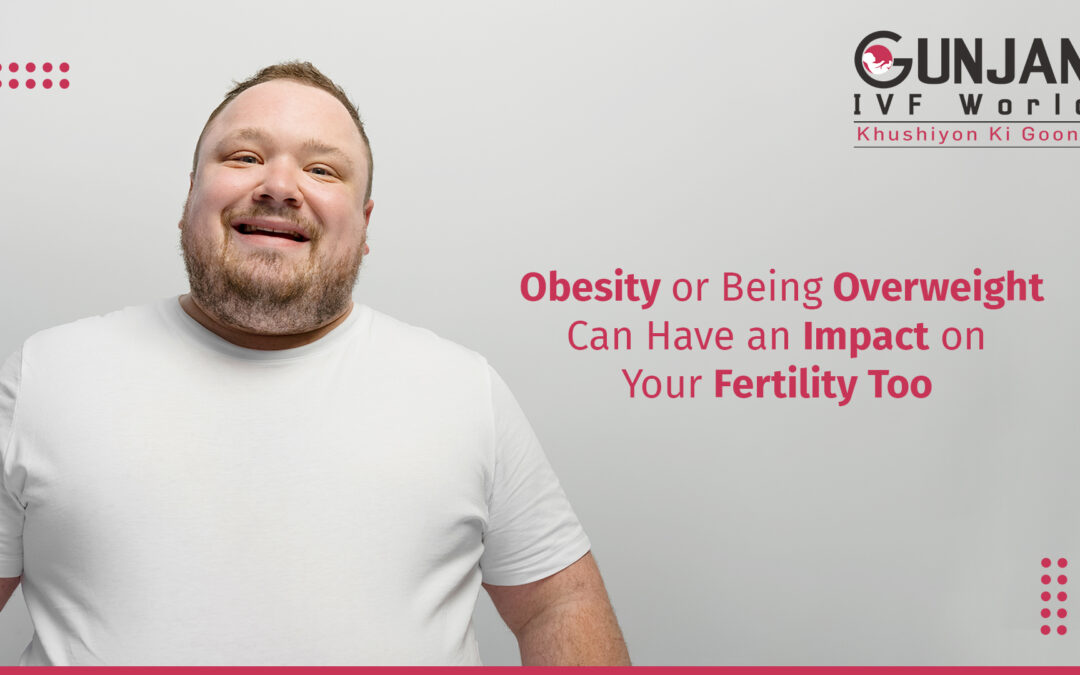
Can obesity or being overweight have an impact on a man’s fertility?
Comprehensive Fertility Treatments | Gynaecology Procedures | Menopause Management | Pregnancy...

Does testicular temperature have an impact on male fertility
IVF specialists of the best IVF centre in Ghaziabad – Gunjan IVF World share an informative blog...

Is male menopause a myth or reality ?
IVF specialists of the best IVF centre in Ghaziabad – Gunjan IVF World debunk the myths about male...
Educational Videos
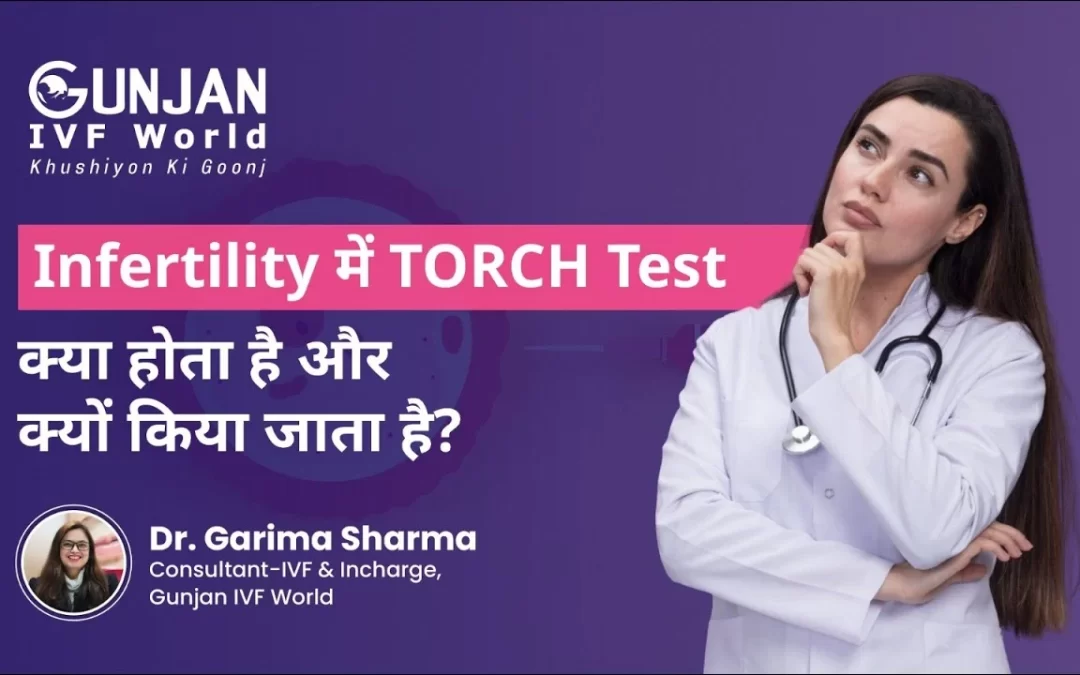
What is TORCH test in infertility and why is it done?
There are numerous tests that are available to infertile couples that are recommended by some doctors, which might help them determine the cause of their infertility. One such test is the TORCH test.
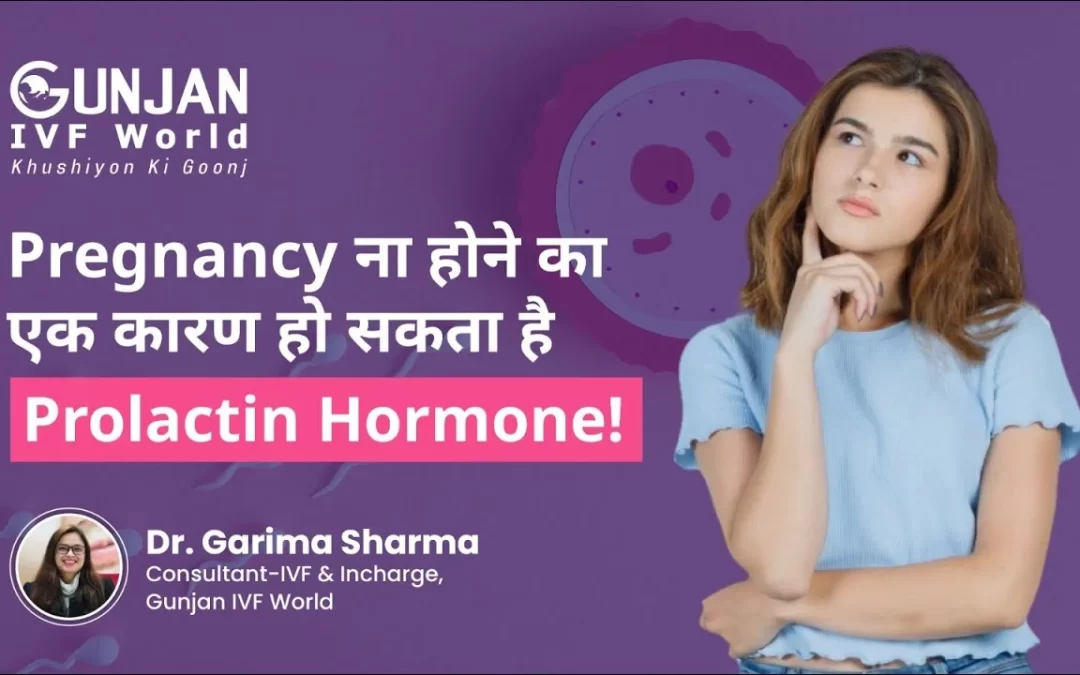
What is Prolactin Hormone?
Prolactin is a hormone produced by the pituitary gland present at the brain’s base. It is best known for its role in lactation, or milk production, in breastfeeding women.However, Prolactin also plays other important roles in both men and women, such as regulating the immune system, stimulating the growth of new blood vessels, and influencing behaviour and reproductive function. In this blog, we will explore what Prolactin is, how it works, and what happens when there are imbalances in prolactin levels.
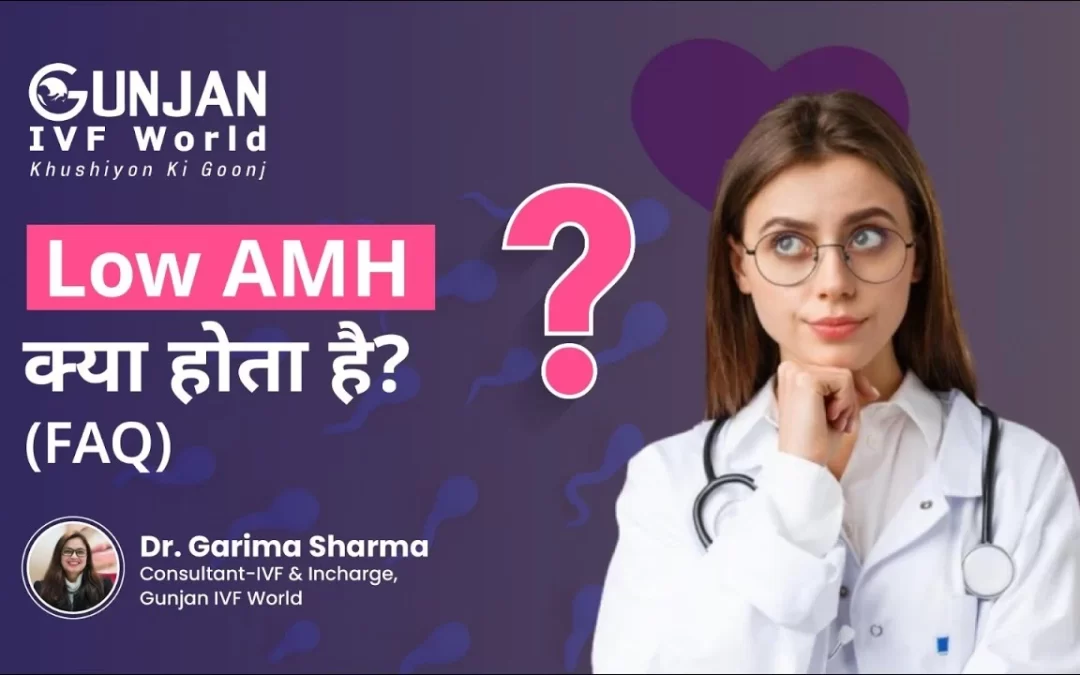
Frequently Asked Questions about Low AMH
Primordial and Preantral follicles produce AMH. So the AMH level indicates the number of eggs or egg reserves you have in your ovary. Putting simply, if your AMH level is low, then the number of eggs in your ovary is less.
Frequently Asked Questions
Can obesity or being overweight have an impact on a man’s fertility?
Comprehensive Fertility Treatments | Gynaecology Procedures | Menopause Management | Pregnancy Care | Maternity & Birthing Call +919990044555A short article by IVF experts...
Does testicular temperature have an impact on male fertility
IVF specialists of the best IVF centre in Ghaziabad – Gunjan IVF World share an informative blog on one of the most ignored factors of male infertility. It is an alarming fact to...
Is male menopause a myth or reality ?
IVF specialists of the best IVF centre in Ghaziabad – Gunjan IVF World debunk the myths about male menopause through this informative blog Menopause as a term is extremely common...
Advanced IVF Care with Clinical Excellence








